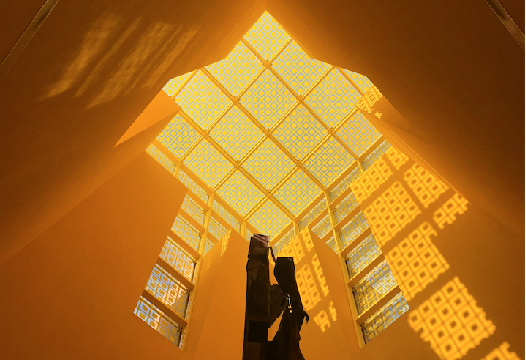 Technologies have been growing unprecedentedly, bringing new innovative solutions with enormous potentials to fast forward the achievement of the Sustainable Development Goals (SDGs), across all 17 goals and several global targets. These new risks, speed, and complexity of technological development also trigger policy and regulatory challenges. It is a common notion that governments have limited resources, expertise and capacity to understand, assess, and keep up with the fast-changing pace of ICT-enabled innovations, especially in developing countries. Very often this leads to scenarios of under-regulation that miss opportunities or regulatory overreactions that stifle innovation and exacerbate digital exclusion.
Technologies have been growing unprecedentedly, bringing new innovative solutions with enormous potentials to fast forward the achievement of the Sustainable Development Goals (SDGs), across all 17 goals and several global targets. These new risks, speed, and complexity of technological development also trigger policy and regulatory challenges. It is a common notion that governments have limited resources, expertise and capacity to understand, assess, and keep up with the fast-changing pace of ICT-enabled innovations, especially in developing countries. Very often this leads to scenarios of under-regulation that miss opportunities or regulatory overreactions that stifle innovation and exacerbate digital exclusion.
Policy experimentation and regulatory sandboxes can create a more conducive and contained space where incumbents and challengers from public, private and civil society sector experiment with innovations at the edge or even outside of the existing regulatory framework. As a result, novel digital technologies, financial products, and business models can be tested under a set of rules, supervision requirements, and appropriate safeguards. These measures bring the cost of innovation down, reduces barriers to entry, and allows regulators to collect important insights before deciding if further regulatory action is necessary, especially when existing regulations or the absence thereof can impede innovation.
A successful test may result in several outcomes, including full-fledged or tailored authorization of the innovation, changes in regulation, or a cease-and desist order. Thus, as a mechanism facilitating adoption of innovative technologies and new business models for achieving the SDGs, countries that experience shortage of financial, human, or technical resources can benefit from regulatory sandboxes as a “safe space” to test new technology-based services in “government-like controlled environment” for a limited time.
The objective of this project, over a period of four years (2020-2023) is to improve the institutional capacity of countries to develop policy experimentation and regulatory sandboxes on new technologies as an innovative and catalytic approach to accelerate the progress of the 2030 Agenda for Sustainable Development.
The planned deliverables are expected to contribute to the result, which would improve the institutional capacity of selected countries among the LDCs, SIDS, and LLDC in Asia and the Pacific region. The evidence of the result, if achieved, include each participating country having prepared the recommendations and guidelines to establish means to policy experimentation and a regulatory sandbox. This may also translate into policy documents, in draft or working versions, specifically on policy experimentation and regulatory sandboxes. In addition, strategy documents, project proposals outlining innovative use of new technologies in the implementation of SDGs, derived from policy experimentation and regulatory sandboxes through multistakeholder engagement, can also become evidence of success of the project.
Project code: 2124B
Primary division: UN DESA/DPIDG
Partners: UN ESCAP
Funding source: Development Account
Time frame: January 2021 – December 2024
Focus countries: LDC/LLDC/SIDS (countries to be confirmed)
Thematic areas: Digital Government; Public Institutions; ICTs for Sustainable Development
To read more information, please visit here.
 Welcome to the United Nations
Welcome to the United Nations